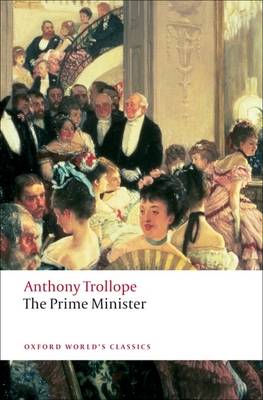Kirsty McHugh, OUP UK
For the first time in over 30 years, the British general election last week resulted in a hung parliament. The news is full of the latest rounds of negotiations between the Conservatives, Labour, and the Liberal Democrats, and at the time of writing, we still don’t know who will form the next government.
But what does ‘hung parliament’ actually mean? I turned to the Concise Oxford Dictionary of Politics to find out.
[Hung parliament is the] name for the situation when after an election no political party has an overall majority in the UK House of Commons. Without a written constitution the response to such a circumstance is governed by statements by courtiers and senior civil servants as to what the constitution requires the monarch to do. The most famous of these statements were by Sir Alan Lascelles, private secretary to George VI, in a letter to The Times in 1950, and by Lord Armstrong, secretary to the cabinet between 1979 and 1987, in a radio interview in 1991.
The incumbent prime minister may continue in office and offer a queen’s/king’s speech: that is, a speech delivered by the monarch but written by the government, outlining its programme. This is likely only if the prime minister’s party still has the largest number of seats, or a pact with another party can be engineered to ensure an overall majority. If the prime minister cannot command the largest party in the Commons and has no pact then the prime minister may ask the monarch to dissolve Parliament and call a further election. In the absence of precedent it remains unclear whether the monarch would be obliged to accede to this request. More likely, the prime minister would resign and advise the monarch upon a successor. Usually the monarch would heed that advice, although in the last resort the monarch is not bound to do so. The new prime minister would then form a government and if a working majority could again not be sustained, a dissolution of Parliament and calling of a second election would be sought and gained from the monarch.




Anthony Trollope’s Palliser novels offer many fascinating parallels with today’s political scene, none more so than the fifth novel in the sequence, The Prime Minister. Nicholas Shrimpton, of Lady Margaret Hall, Oxford, will be editing the new edition of the novel for Oxford World’s Classics (out next year). His profile of Trollope’s fictional hero, Plantagenet Palliser, finds some uncanny resemblances between fiction and reality.
What sort of person do we want as our Prime Minister? 
Anthony Trollope’s example, in his novel The Prime Minister (1875-6), is an introverted, socially awkward technocrat whose ideal job was as Chancellor of the Exchequer – where he spent his time happily, but indecisively, pondering the mathematical problems of the introduction of decimal currency.
He takes over as premier from a more charismatic member of his own party, without a general election to confirm his mandate, and gets on badly with the cabinet ministers who are not members of his own small circle of friends and admirers. Much less good at PR than his talented wife, he is very quick to lose his temper: ‘I think, sir, that your proposition is the most unbecoming and the most impertinent that ever was addressed to me’ is his over-the-top response when the silly but harmless Major Pountney approaches him in search of a seat in parliament. With a high sense of his own dignity, and an inflexible belief in the correctness of his moral compass, he presides over three years of government in which not a single ‘large measure’ is carried. As his struggles to smile and be pleasant suggest, he doesn’t enjoy the role of Prime Minister in the least. But when it looks as though he will have to give it up, he can’t bear the thought of yielding authority to anybody else.
Does this, perhaps, remind you of somebody?

1. Put fake money into the collection plate.
2. Sing badly out of tune.
3. Take a fake fit of sneezing.
4. During songs put whoopee cushions on peoples seats.
5. Shout Hallelujah constantly even when people are telling a sad story.
6. Bring crunchy sweets like wethers originals with you, and chew on them constantly.
7. Continuously shout “Thank You Allah!” if its a Christian Church.
8. Constantly sniff, this will really annoy the old ladies sitting in front of you.
9. Fart a lot, annoying to every near to you…!
10. Grunt constantly, especially when people are reading Bible passages.




